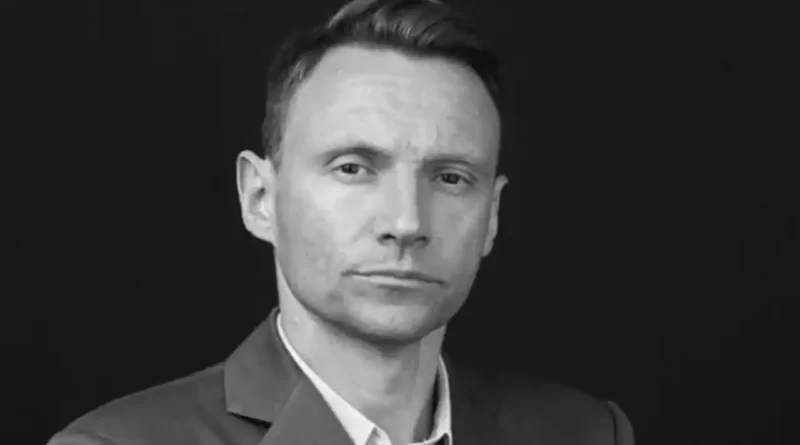Zygi Kamasa discusses the debut film for True Brit Entertainment, the challenging UK distribution landscape and ways to promote British film.
Zygi Kamasa discusses the debut film for True Brit Entertainment.

Zygi Kamasa, former head of Lionsgate UK & Europe and CEO of Marv Studios Group, launched film and TV company True Brit Entertainment last month, backed by talent management and entertainment company Three Six Zero, which includes Calvin Harris, Frank Ocean, F. Talent represented included KA Tuggs, Will Smith. , Marcus Rashford and Kid Caddy.
The company will focus exclusively on British feature films and TV.
Here, Zygi Kamasa talks to us about his debut production Marching Powder, starring Danny Dyer, and how True Brit navigated the UK’s challenging indie distribution landscape in his first interview. I fit in ways to animate British filmmaking.
True Brit aims to invest in and release between four and eight British films annually, and Kamasa’s ambition is to finance productions worth more than $50M each year. Matthew Vaughn’s Marv will be a minority shareholder in True Brit Entertainment, supporting the development of the new business.
While at Lionsgate, Zygi Kamasa discusses worked on the release of over 40 British titles including Band It Beckham, Salmon Fishing in Yemen, Brooklyn, Eddie the Eagle, and The Father. He also stole dozens of American blockbusters and Oscar winners such as The Hunger Games and La La Land.

Among Maru, he starred in the Taron Egerton starred Tetris, which was sold to Apple TV Plus, and Vaughan’s latest big screen film Argylle, starring Henry Cavill, Sam Rockwell, Bryce Dallas Howard, Samuel L Jackson and John Cena.
Kamasa: Nick had previously done this film as a straight drama thriller but he wanted to take it further.
We didn’t want to do a derivative version of Football Factory. That said, the original was a huge success and sold 2.5M DVDs despite not doing so well in theaters.
Nick wanted to make the work neutral and lighthearted, while also showing how it could be violent and terrifying. He wanted to make a statement about the genre after ten years away from filmmaking.
Camasa: Both Nick and Danny have a huge cult following in the UK.
There aren’t many places in Britain these days that would fund such a low-budget commercial British film. I’ve done a lot of films with Film4 and Films, and they’re fantastic at what they do, I’ll continue to work with them, but I won’t be making any films like that. Neither does the BFI.
Movies like Lock, Stock, Layer Cake, Snatch and Bend it Like Beckham are not being made today. Filmmakers like Nick have been working more in TV over the past decade, creating hit series like Bulletproof and A Town Called Miles. This film is the kind of thing that many British directors would be happy with.
DEADLINE: Are you starting this movie as a potential safe house play or is it going to go wide in theaters?
Kamsa: As wide a theater as possible, 100%. My aim at True Brit is to do five to six British films per year as wide theatrical releases with big P&A and big campaigns.
I feel that this movie is more of a commercial offering than Football Factory. It is a comedy caper with action sequences and even a romantic comedy element.
Deadline: What needs to happen next on the project? Do you have your entire cast?
Kamsa: We are yet to cast other key characters, some of whom will be newcomers. This was one of the best calling cards of films like Lock, Stock, and Bend It Like Beckham: they successfully showcased new faces.
Deadline: Who is Rockstar Media and how are they involved?
Kamasa: This is the company that makes Grand Theft Auto [Rockstar Games, which has a film and TV division that also invested in The Football Factory]. He worked closely with Nick in his early career. Zygi Kamasa …
They put money into it like we did. We both financed it together with Altitude. Going forward, on the right project, I would put equity and gap.
DEADLINE: What are True Brit’s plans for its size and scale?
Kamsa: I plan to have a complete theater team with at least 10-15 people: marketing, PR, in-house distribution team, etc. I will see how I handle the house. Today you have to be creative during the production process.
In a studio, having 15-16 films a year makes it very difficult to give everyone the attention they deserve. Zygi Kamasa…
It will vary in True Burt. Working with Matthew Vaughn at Marv gave me more insight into how to optimize a film’s release during the creative process.
Kamsa: I support anything that encourages people to watch British films.
My previous proposal came when I chaired the Independent Film Review at the BFI. At the time, we tried to discuss something about the additional tax credit for British films under £10M which has now resurfaced. We didn’t include it in our commission at the time because there wasn’t enough support for it. Now there seems to be a lot of support for it. Britain certainly should.
Cinemas should make a commercial decision as to what prices to choose. But cinemas today are offering more flexible ticket prices.
It doesn’t make sense for the average user to pay that much to see Avatar as marching powder. While both are art and you shouldn’t compare art to production value, consumers are still consumers, and they will question the vast difference in budget.
I think if you reduced the ticket price of a good British film by 20% – or whatever the number is – you would sell significantly more in terms of percentage. Audiences are price-sensitive.
Price sensitivity exists in other sectors so why not apply it to cinema? I think cinemas are getting it, but that said, I’d argue that there haven’t been enough big British films recently to inspire such a shift. I hope I can help change that.

